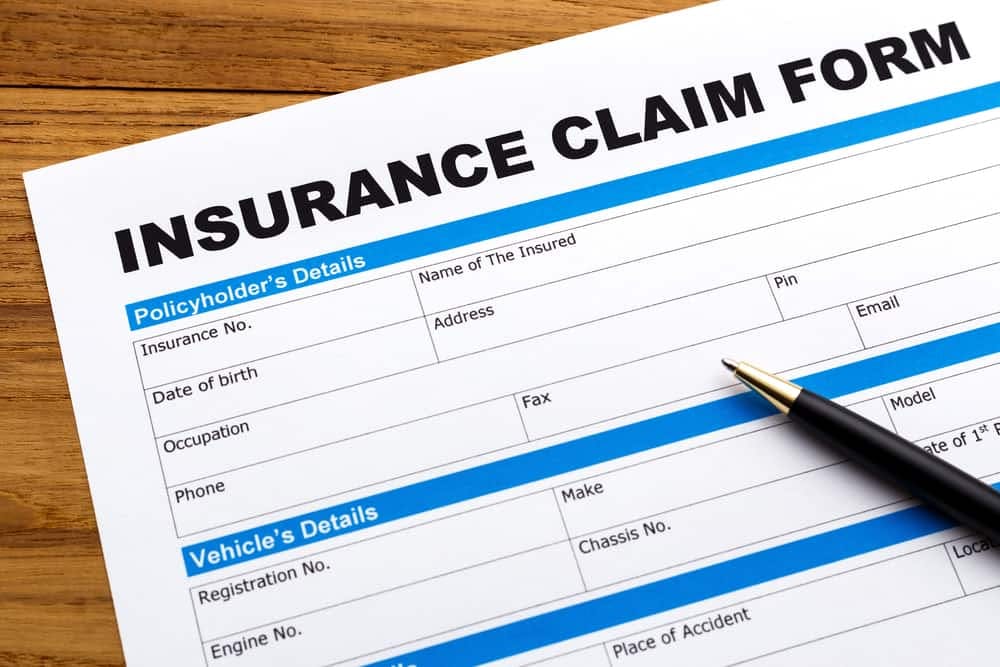
After an accident, you may suffer from injuries that require costly medical treatment and significant time away from work. Talking to your insurance company while dealing with these challenges is likely the last thing on your mind.
Furthermore, any offhand comments you make to your insurer could harm your options for seeking compensation for your medical bills, lost income, and other crash-related losses. Thus, knowing what to say—and what not to say—to the insurance company following an accident is crucial to protecting your rights.
This blog post explains why what you say to your insurance company matters, what you should avoid saying, what to do if the insurance company denies your claim and why consulting an Tacoma Personal Injury attorney can benefit you. That way, you will be better prepared to protect your interests and strengthen your claim.
Why Does What You Say to Your Insurance Company Matter?
Drivers purchase automobile insurance because it is the law in most states. However, drivers also buy insurance to protect themselves financially if collisions occur and result in injuries or property damage. While car insurance is essential to protecting yourself, remember that the insurance company is a for-profit business and does not have your best interests in mind.
Thus, you must watch what you say to your insurer after an accident. Insurance companies make money by paying as few claims as possible and keeping what they do pay to a minimum.
Therefore, they look for opportunities to deny claims, including by shifting the blame to the policyholder or another party or ways to reduce a claim’s value.
Insurance companies may twist the words of policyholders or use what they say as proof of fault. For instance, your insurance company might use your offhand apology to prove you are liable for a car accident. Thus, knowing what to say is crucial to protecting your interests and rights.
Things to Avoid Saying to Your Insurance Company After an Accident
When talking to your insurance company, the smart way to protect yourself from errors is to hire an experienced attorney to communicate with the insurer on your behalf. Furthermore, should you speak to the insurance company, a lawyer can prepare you and advise you on what not to say.
For instance, your lawyer may recommend that you avoid:
- Admitting Fault: It’s natural to want to apologize or accept blame after an accident, but you should avoid doing so when talking to your insurance company. Even a simple apology might constitute an admission of guilt in your insurer’s eyes. Let investigators determine fault based on the evidence, not your words.
- Speculating About What Happened: Stick to the facts. Refrain from trying to fill in gaps or guessing what caused the crash. Speculation can lead to misinterpretations and harm your claim. If you don’t know the answer to a question, it’s okay to say so.
- Downplaying Your Injuries: Initially, you might not realize the full extent of your injuries. Avoid making statements that downplay your condition. Saying things like “I’m fine” or “It’s not that bad” can harm your case if your injuries turn out worse than you thought.
- Providing a Recorded Statement Without Preparation: Your insurance company may request a recorded statement after an accident. It’s wise to prepare for this by discussing it with your lawyer. Speaking off the cuff can lead to inconsistencies or accidental admissions an insurer could use against you. Only provide a recorded statement after consulting your lawyer.
- Settling Quickly: Resist the urge to settle your claim quickly. You might not yet understand the full extent of your injuries or financial losses. Agreeing to a settlement right away can leave you with less money than you deserve. Insurers often make lowball settlement offers, hoping claimants will accept them and move on before realizing their claims are worth much more.
What You Should Say to Your Insurance Company After an Accident
While knowing what not to say to an insurance company can help you with an injury claim, you must also know what you can say. Here are some guidelines for what to tell an insurance company after an accident:
Confirm the Basic Facts
Provide clear and concise details about the accident. This includes the date, time, location, and a factual description of what occurred. Stick to the basic facts without adding opinions or assumptions.
Identify Witnesses and Other Parties
If a neutral party saw the accident, share their contact information with your insurer. This allows the insurance company to gather additional perspectives that could help your claim.
Report Any Notable Circumstances
Mention any significant factors relevant to the accident, like adverse weather conditions, road issues, or traffic signs. These details help in creating an accurate context for the incident.
Describe Vehicle Damage
Give an accurate description of the damage to your vehicle. If possible, take photographs of the damage and share them with your insurer. Visual evidence helps in assessing the extent of the damage.
Describe Your Injuries Thoroughly
If you sustained injuries, inform your insurance company, even if they seem minor. You may also share your medical records with the insurer if doing so bolsters your claim. This step helps establish a thorough record of your injuries from the start.
Ask What the Next Steps Are
Inquire about the next steps in the claims process. This shows you’re cooperative and engaged, and it also helps you understand what to expect and whether you need to provide additional information or documents.
Inquire About Coverage
Ask about the specific coverage in your policy that applies to your situation. Understanding your policy helps you know what compensation you qualify for and can guide your expectations.
Express Willingness to Cooperate
Show your willingness to cooperate with the insurance company’s process. Maintaining a professional environment can help in moving your claim forward efficiently.
What if the Insurance Company Disputes My Claim?

If your insurance company disputes your claim, there are steps you can take to address the situation. The dispute might arise from disagreements over the cause of the accident, the extent of damages, or your policy’s coverage.
When this happens, you need to understand the specific reasons for the dispute. Your insurance company should provide a written explanation.
Once you know the basis of the dispute, you and your lawyer can gather evidence to challenge the insurer’s decision. This could include additional documentation, photographs of the accident scene, medical records, or witness statements. You can submit this evidence to your insurance company as part of an appeal against their decision.
Working with a knowledgeable attorney can make this process significantly easier.
A lawyer experienced in dealing with insurance claims can review your policy to ensure that the insurance company follows the terms and the law. An attorney can help gather and present compelling evidence, negotiate with the insurance company on your behalf, and explain your rights and legal options at each step.
If necessary, an attorney can also represent you in legal proceedings should you need to file a lawsuit to obtain fair compensation. Remember, insurance companies often have teams of lawyers working for them, so having your own legal support can level the playing field.
The Essential Steps of an Accident Injury Claim
A personal injury claim can take several weeks or months to resolve and sometimes longer if you need to appeal the insurance company’s decision. While no two accident claims are the same, most claimants will follow these specific steps in the claims process:
Report the Accident
Even if you believe you suffered only minor injuries or property damage, dial 911 or call the police after an accident. The responding police officer can investigate the crash and document their findings in an accident report, which can be helpful evidence in your claim.
After seeking medical attention, notify your insurance company about the accident.
Document Everything
Hold on to any evidence you collect from the accident scene. This may include photos of vehicle damage, injuries, road conditions, or traffic signals. Get the names and contact information of witnesses who saw the crash. Get the name and insurance information of the other party involved. Keep all medical records, receipts, bills, or invoices related to your treatment.
Review Your Insurance Policy
Understand what your insurance policy covers and does not cover. This helps you know what to expect regarding compensation for medical expenses, lost income, and other losses.
Consult an Attorney
Hire an attorney with experience handling accident injury claims. They can guide you through the claims process, help you negotiate with insurance companies, and protect your legal rights.
File an Insurance Claim
Submit a claim to your insurance company, providing them with all the necessary documentation and evidence you have collected.
Negotiate a Settlement
Once your insurance company processes your claim, it will likely offer a settlement. Review this offer carefully. You and your lawyer can negotiate a better settlement if it doesn’t cover all your expenses or damages.
Consider Legal Action
You may need to file a lawsuit if negotiations don’t result in a satisfactory settlement. This is where having an attorney is crucial. Your lawyer can represent your interests in court and fight for fair compensation.
Finalize the Settlement
Once you and the insurance company settle, either through negotiations or a court judgment, you will finalize the agreement. Have your attorney review the agreement and ensure you understand the terms before signing.
How Much Is an Accident Injury Claim Worth?
Every accident injury claim is distinct and involves specific circumstances that will determine the claim’s value. Thus, estimating how much an accident injury claim is worth can be challenging. To calculate your potential compensation from an injury claim, your lawyer will review and document all eligible losses from the accident.
Those losses, depending on the situation, may include:
- Medical Expenses: This includes all costs related to your medical treatment, from emergency room visits and hospital stays to follow-up appointments, physical therapy, and medication. Your compensation may also include money for any future medical care you need due to the accident.
- Lost Income: If your injuries force you to miss work, you can claim compensation for lost earnings and benefits. This covers not just your missed days but any future loss of earnings if your injuries affect your ability to work long-term.
- Pain and Suffering: Unlike tangible costs like medical bills, pain and suffering refer to the physical and emotional distress your injuries have caused. This can include pain, discomfort, anxiety, stress, and the overall impact on your quality of life.
- Property Damage: If the accident resulted in damage to your property, such as your vehicle, you could claim compensation for the cost of repairs or replacing your property.
- Loss of Enjoyment: When injuries prevent you from enjoying day-to-day activities or hobbies you previously engaged in, you can claim compensation for this loss of enjoyment.
- Loss of Consortium: This applies if your injuries affect your relationship with your spouse or partner. It covers the loss of companionship, affection, and other elements of the relationship due to your injuries.
- Punitive Damages: In cases involving a defendant’s especially harmful or reckless conduct, a judge or jury may award punitive damages. These damages do not provide monetary compensation. Instead, they punish the wrongdoer and deter similar behavior.
Deadline to File a Personal Injury Lawsuit

Lawyer
If your insurance company denies your claim or doesn’t offer a reasonable settlement, you may need to take your case to court. However, you have a limited window to file a lawsuit after an accident.
Each state has a law called a statute of limitations that sets the deadline for filing personal injury lawsuits in civil court. Because this deadline varies from state to state, you should consult a lawyer immediately after an accident to determine how much time you have. If you miss the statutory deadline, you could lose your right to seek compensation through a civil lawsuit.
While the statute of limitations does not bind insurance settlements, the threat of a lawsuit can provide leverage that forces the insurer to return to the bargaining table to reach a fair settlement out of court.












